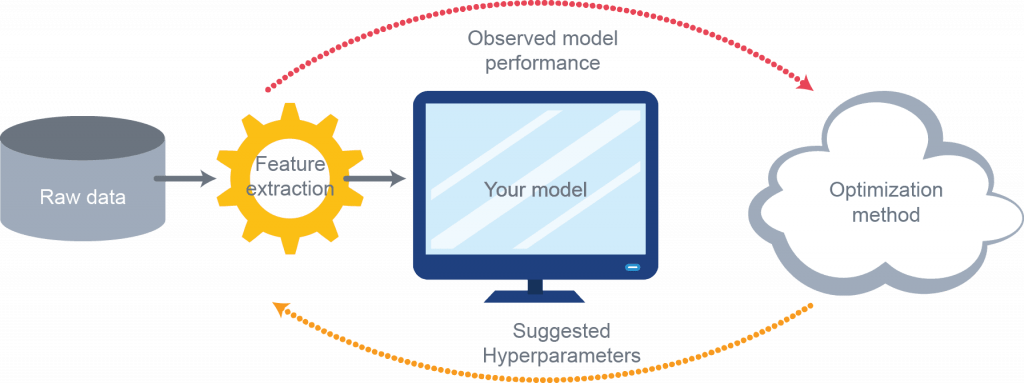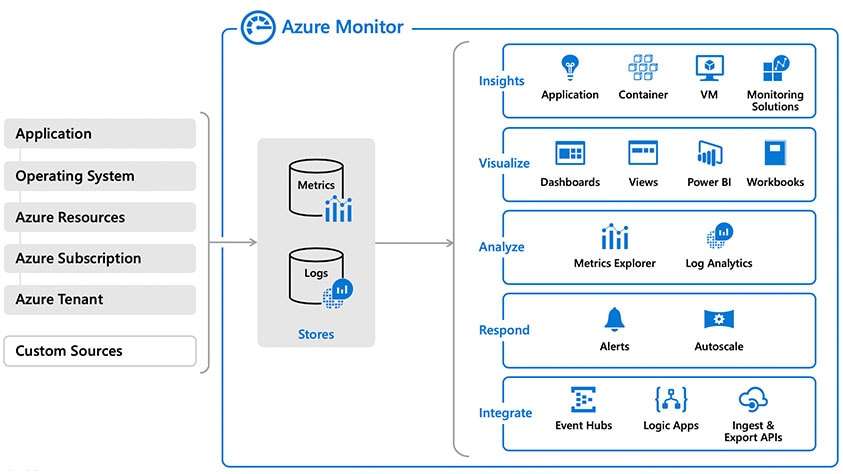
- Introduction to DP-100 Certification
- Eligibility and Exam Prerequisites
- Exam Format and Structure
- Key Topics Covered in DP-100
- Data Science and Machine Learning on Azure
- Building and Training Machine Learning Models in Azure
- Azure Machine Learning Services Overview
- Security and Compliance in Azure Data Science
- Recommended Study Resources for DP-100
- Career Opportunities with DP-100 Certification
- Conclusion
Introduction to DP-100 Certification
Microsoft offers the DP-100: Designing and Implementing an Azure AI Solution certification exam, which focuses on evaluating the skills of data scientists and machine learning professionals working with Azure Machine Learning services. The certification is part of Microsoft’s Azure AI Engineer Associate role, and it is designed for professionals who wish to demonstrate their expertise in building, training, and deploying machine learning models in the Azure environment. In today’s data-driven world, organizations are looking for skilled professionals who can design, implement, and manage machine learning models using Azure’s suite of services. The DP-100 exam provides a comprehensive validation of your abilities in these areas, essential for advancing your career in data science and machine learning on the Azure platform.
Eligibility and Exam Prerequisites
The DP-100 exam does not have specific eligibility requirements, but it is recommended that candidates possess the following:
- Understanding of Data Science Concepts: Having a strong foundation in statistics, machine learning algorithms, and the basics of artificial intelligence is beneficial.
- Experience with Azure: Familiarity with Microsoft Azure services, specifically those related to machine learning, is essential. Some experience with Azure Machine Learning services or at least exposure to Azure-based solutions is recommended.
- Basic Programming Knowledge: Since the exam deals with building machine learning models, proficiency in languages like Python or R is essential.
- Experience in Machine Learning: Candidates should have hands-on experience designing and deploying machine learning models, understanding their life cycle, and working with tools like Azure ML Studio.
- Number of Questions: Typically, the exam includes around 40-60 questions.
- Exam Duration: You are given 120 minutes to complete the exam.
- Exam Fee: The exam cost is approximately $165 USD, though this may vary depending on your location.
- Question Types: The exam includes: Multiple-choice questions (MCQs), Case study questions, Practical scenario-based questions
- Passing Score: The passing score for the DP-100 exam is 700 out of 1000 points.
- Azure Machine Learning Studio: A collaborative data science development environment that helps you create, train, and deploy machine learning models.
- Azure Databricks:A fast, easy, and collaborative Apache Spark-based analytics platform that integrates deeply with Azure Machine Learning services.
- Azure Notebooks: A cloud-based Jupiter Notebook service that allows for easy sharing and execution of data science and machine learning projects.
- Azure AI Services: These include various pre-built AI models, such as Cognitive Services, Azure Search, and Azure Vision, which can be leveraged within the broader machine learning workflows.
- Azure ML Studio
- Automated Machine Learning
- Azure ML Pipelines
- Microsoft Learn: The official Microsoft Learn platform provides free learning paths, modules, and hands-on labs that cover all the topics necessary for the DP-100 exam.
- Official Exam Guide: Microsoft offers an official exam guide detailing the exam’s structure and the topics to study.
- Books: Books like “Exam Ref DP-100 Designing and Implementing an Azure AI Solution” are available to provide deeper insights into the exam content.
- Online Courses: Many third-party providers, such as Pluralsight, Udemy, and LinkedIn Learning, offer comprehensive courses for the DP-100 exam.
- Azure Documentation: Microsoft’s official documentation for Azure Machine Learning services is an essential resource for understanding the details of the services tested in the exam.
- Data Scientist: Responsible for analyzing and interpreting complex data to help organizations make data-driven decisions.
- Machine Learning Engineer: Focuses on building and deploying machine learning models into production environments.
- Azure AI Engineer: Specializes in implementing AI solutions using Azure Machine Learning and other AI services.
- Data Engineer: Focuses on building and managing data pipelines and data architecture.
While there are no formal prerequisites, individuals with some hands-on practice in machine learning or experience with cloud technologies, especially Azure, will be better prepared for the exam.
Exam Format and Structure
The DP-100 certification exam consists of multiple-choice and performance-based questions designed to evaluate your theoretical knowledge and practical skills in implementing machine learning solutions in Azure.

Key Topics Covered in DP-100
The DP-100 certification exam is focused on key areas relevant to data science and machine learning on Azure. The primary exam domains include:
Prepare Data for Modeling (15-20%): Understanding data preparation strategies (e.g., data cleaning, feature selection). Using Azure Machine Learning Studio for data preprocessing. Implementing data transformation and scaling methods.
Develop Machine Learning Models (25-30%): Implementing supervised and unsupervised learning algorithms. Working with regression, classification, and clustering models. Using Azure ML pipelines to automate model training and testing. Hyperparameter tuning and model selection.
Deploy and Evaluate Models (25-30%): Deploying machine learning models to Azure Kubernetes Service (AKS) or Azure App Services. Managing the lifecycle of machine learning models in production. Evaluating model performance and improving model accuracy. Integrating models into web services or other applications.
Automate and Monitor Models (20-25%): Setting up automated pipelines for training and evaluation. Monitoring and managing models in production environments. Using Azure Machine Learning to monitor model drift, errors, and anomalies. Implementing security features and compliance monitoring for machine learning models.
Data Science and Machine Learning on Azure
Azure provides tools to help data scientists, data engineers, and AI engineers create sophisticated machine-learning models. These tools include:
The DP-100 certification exam requires hands-on knowledge of these services and their application in machine learning workflows on Azure.
Building and Training Machine Learning Models in Azure
When building and training machine learning models in Azure, candidates must understand the entire machine learning workflow, including, You must be able to ingest data from various sources (e.g., Azure Blob Storage, SQL Database) and preprocess it using Azure’s data transformation tools. Understanding how to select the appropriate machine learning algorithm (e.g., regression, classification, clustering) based on the problem. will be used to train models on the prepared data, with the ability to adjust training parameters and use different machine learning algorithms. Optimizing model performance through hyperparameter tuning to select the best combination of model parameters.
Azure Machine Learning Services Overview
Azure Machine Learning is the core service that candidates must be familiar with. This service offers an end-to-end platform for building, training, and deploying machine learning models. The key components include:
An interactive tool for developing machine learning models with a drag-and-drop interface, suitable for users who are new to data science.This feature automates the model development process by running multiple algorithms to find the best-performing model. Facilitates the creation of end-to-end workflows that automate various stages of the machine learning process, from data preparation to model deployment.
Security and Compliance in Azure Data Science
When working with sensitive data, security and compliance are crucial. Some key topics covered in DP-100 include, Ensuring that data is encrypted both in transit and at rest when stored in Azure or processed. Understanding how to use Azure Active Directory (AAD) to manage user access to machine learning services. Ensuring machine learning projects comply with global standards and regulations such as GDPR and HIPAA. Azure also provides Role-Based Access Control (RBAC) to ensure that only authorized users can access specific resources.

Recommended Study Resources for DP-100
Practice Exams and Mock Tests
To assess your knowledge and readiness for the DP-100 exam, you can take practice exams and mock tests available through: Microsoft Official Practice Test: Microsoft offers a practice test that simulates the real exam environment. Third-Party Providers: Websites like Whizlabs and MeasureUp offer mock exams that can help you understand the format and types of questions you will encounter. Taking practice exams helps reinforce your knowledge, identify weak areas, and build confidence for the actual exam.
Career Opportunities with DP-100 Certification
Achieving the DP-100 certification opens up several career opportunities in the field of data science and AI, such as:
Conclusion
The DP-100 certification is valuable for professionals aiming to advance their careers in machine learning and data science on the Azure platform. With comprehensive coverage of Azure Machine Learning services, data integration, model building, and deployment, the DP-100 exam ensures you have the skills to work effectively with Azure’s powerful machine learning tools. By following the recommended study resources, practicing with mock exams, and focusing on the key topics, you can confidently prepare for the exam and unlock many exciting career opportunities in AI and data science.





